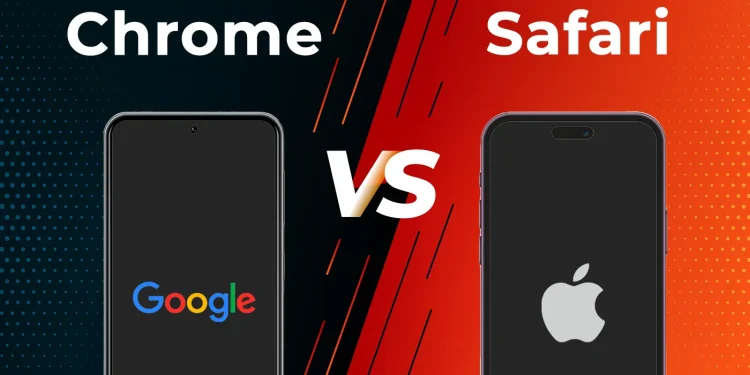Jakarta, Indonesia Sentinel — In an escalating rivalry, Apple has taken a bold stance, urging iPhone users to stop using Google Chrome in favor of its native Safari browser. This follows Apple’s global campaign earlier this year, promoting Safari as the more secure and private browser with the tagline, “Safari—a browser that’s actually private.”
Apple criticized Chrome’s Incognito Mode, calling it outdated for modern privacy needs.
“Relying on a 2005 definition of private browsing, such as Chrome’s Incognito Mode, is no longer sufficient. Users expect and deserve more,” Apple wrote in an update about Safari’s new features.
Google Strikes Back with Major Chrome Updates
In response, Google rolled out significant updates for Chrome on iOS on November 12, aiming to attract iPhone users. With over 300 million potential Safari users targeted, the battle for browser dominance on Apple devices has intensified.
The updates include:
- AI Integration
Chrome now supports Google Lens for advanced searches using both images and text, allowing for more specific and complex queries. - AI Gemini App Preparation
Google hinted at launching its Gemini AI platform as a standalone app for iPhone users. - Enhanced Storage Solutions
Users can now save photos and files directly to Google Drive, addressing iPhone’s limited storage challenges. - Online Shopping Assistance
Chrome introduces real-time price updates for online shopping, a feature currently exclusive to U.S. users. - Seamless Google Maps Integration
Chrome now offers built-in access to mini Google Maps, streamlining navigation without switching apps.
Google emphasized the utility of its AI-driven features, stating:
“You can now add text to visual queries in Google Lens, enabling more precise and useful search results.”
Apple’s Privacy-Centric Campaign
Apple has been pushing Safari’s privacy advantages, even releasing an ad titled “Flock” that metaphorically depicts users being followed by bird-like spies, a reference to Google’s now-defunct privacy project, Federated Learning of Cohorts (FloC).
This campaign underscores Apple’s message that user privacy is a top priority, contrasting it with Chrome’s data-tracking practices.
What’s at Stake?
Google aims to increase its search engine dominance on iPhones, with a goal to expand from a 30% market share to 50%, potentially adding 300 million new users. This ambition poses significant challenges for Apple, especially as regulatory pressures mount for more openness in its ecosystem.
While Chrome has faced criticism for tracking user data, its superior features and performance appeal to a broad user base. This dichotomy highlights two major threats for Apple:
- Regulatory Scrutiny
Authorities are pushing for Apple’s “walled garden” ecosystem to become more open, which could weaken Safari’s exclusivity. - User Priorities
Many users prioritize functionality and performance over privacy, a factor that favors Chrome in this battle.
9,000 iPhone 16 Units at Risk of IMEI Blocking in Indonesia
The Browser War Intensifies
The ongoing competition between Safari and Chrome signals a larger shift in how tech giants compete for user loyalty. With Google doubling down on AI-powered features and Apple leveraging its privacy-focused branding, the battle is far from over.
As both companies vie for dominance, the choice ultimately rests with users: prioritize enhanced functionality or embrace stricter privacy measures?
(Becky)

























